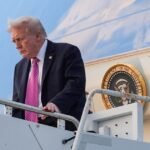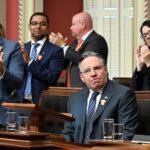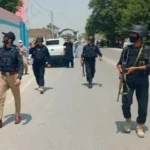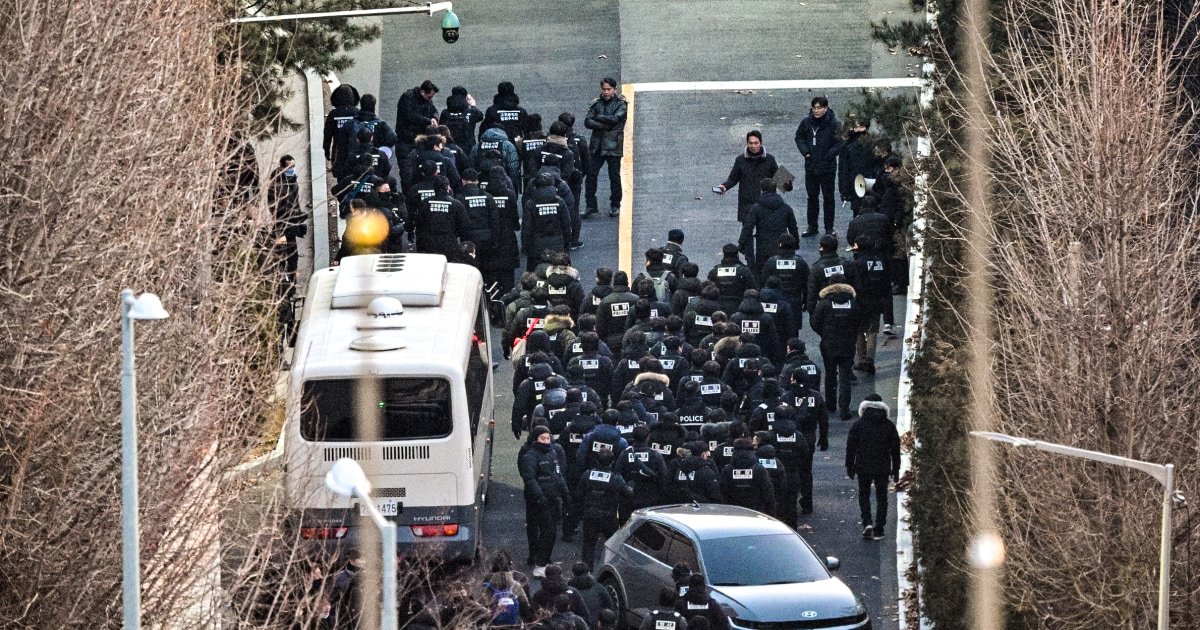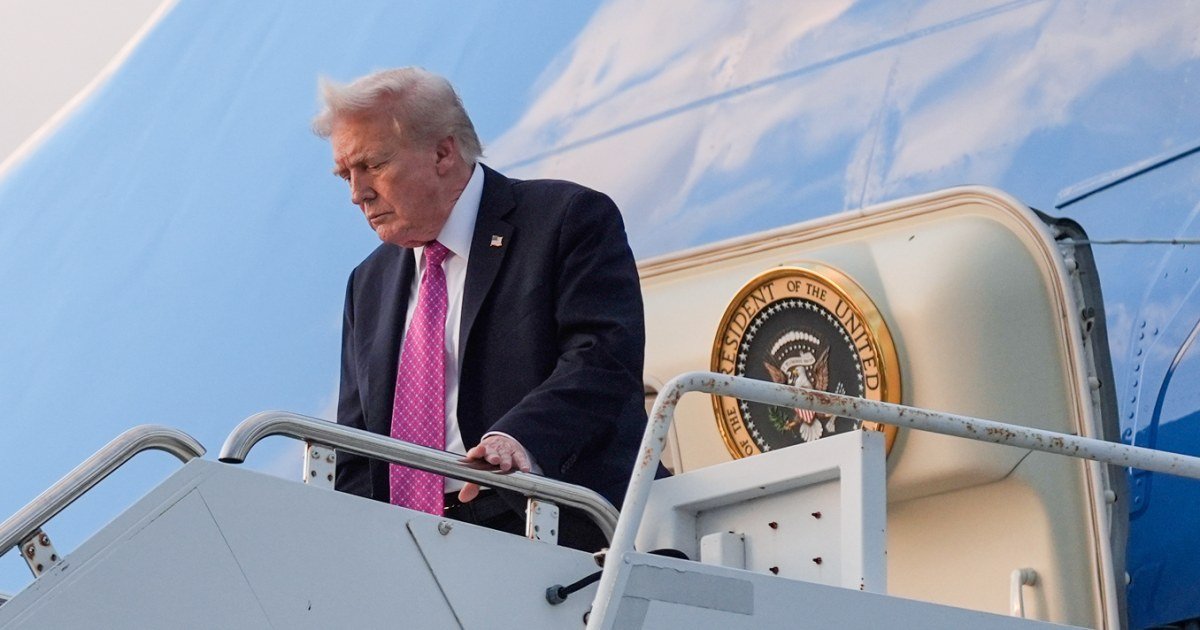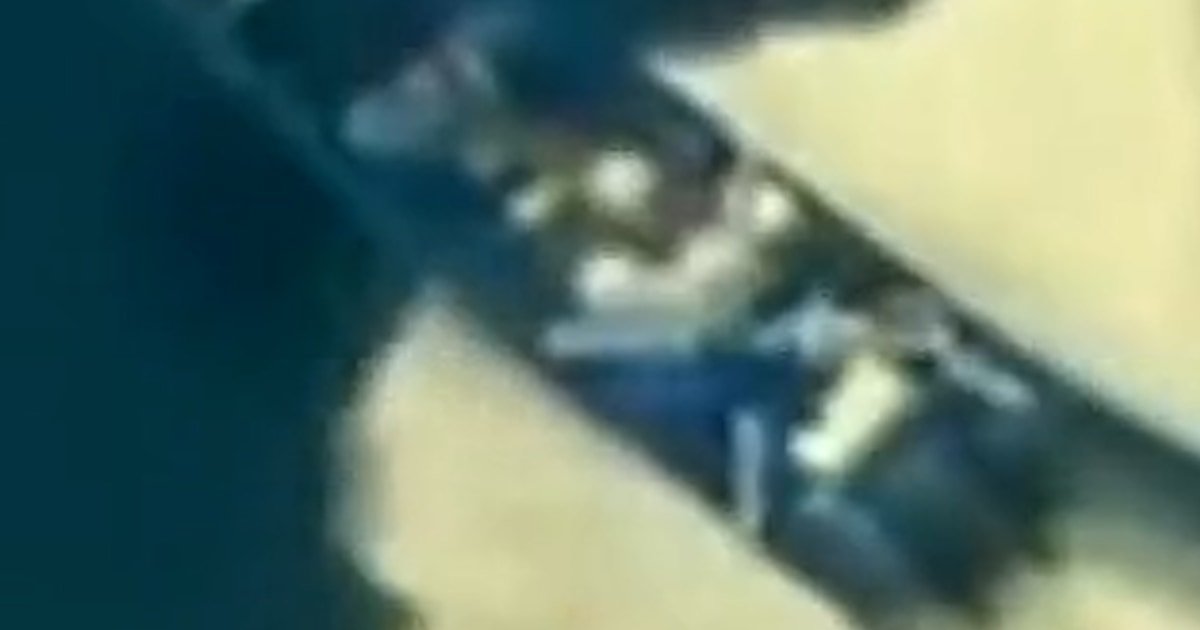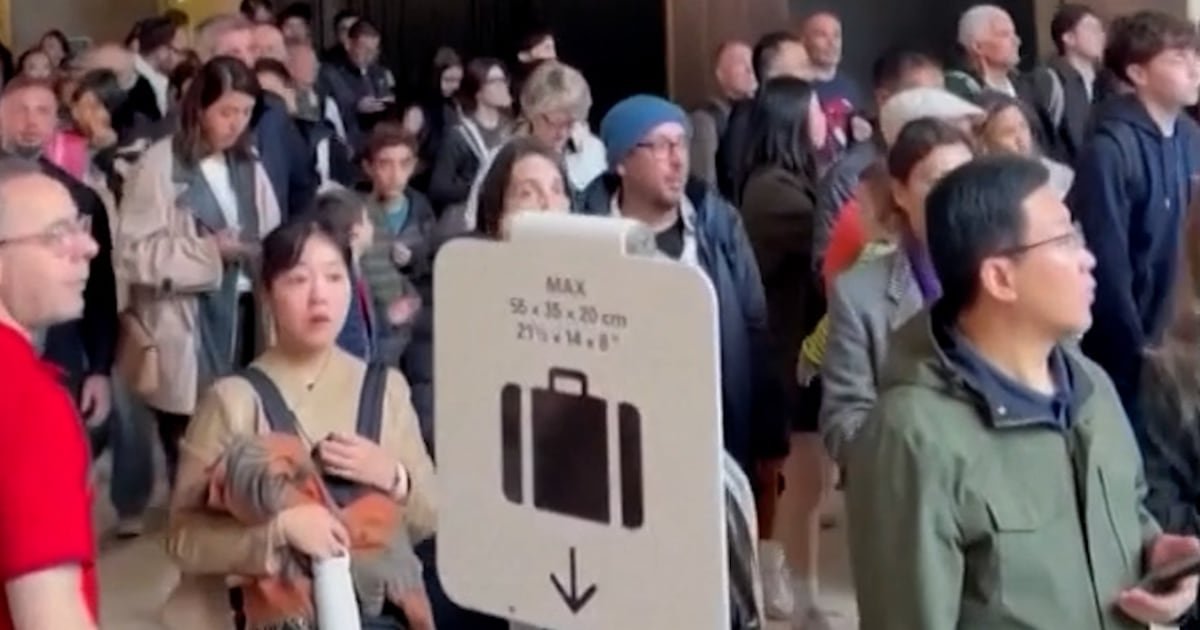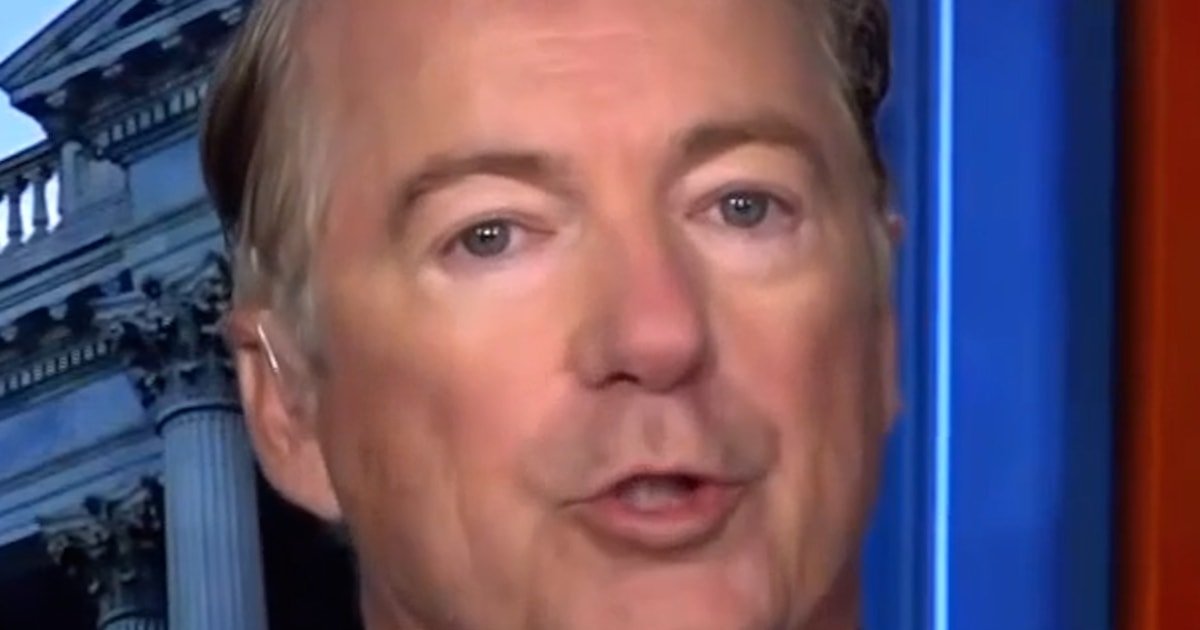SEOUL, South Korea – South Korean authorities on Wednesday began a second attempt to detain President Yoon Suk Yeol over his failed declaration of martial law, weeks after a first attempt ended in a dramatic confrontation at the residence where Yoon has taken refuge. since he was accused. .
Investigators who arrived before dawn at Yoon’s presidential residence in central Seoul were met by members of his security service, who prevented them from detaining Yoon during their first attempt on January 3.
Yoon’s lawyers and lawmakers from his People Power Party were also in the driveway leading to the residence, arguing that the order was illegal and preventing police from advancing toward the residence’s entrance.
Nearby, thousands of Yoon’s supporters and critics held separate protests in sub-zero temperatures.
Police officers could be seen advancing towards the hillside villa after passing through multiple blockades made up of vehicles and barbed wire.
Yoon is wanted for questioning in connection with his brief declaration of martial law last month, which has plunged the key US ally into political instability. He faces possible charges of insurrection, one of the few crimes for which South Korean presidents do not have immunity.
If the order was successfully carried out, Yoon would become the first South Korean president to be arrested while in office.
The second arrest attempt comes a day after South Korea’s Constitutional Court began a trial to determine whether to uphold Yoon’s Dec. 14 impeachment by lawmakers.
Yoon, 64, did not attend the first day of proceedings on Tuesday, citing security concerns. The hearing ended after about four minutes. A second hearing is scheduled for Thursday.
Presidential bodyguards defied orders to stand down and confronted authorities for nearly six hours during the first arrest attempt, saying they were required by law to protect the president. They were backed by thousands of conservative Yoon supporters, many of them carrying American flags and banners with slogans inspired by US President-elect Donald Trump, such as “Stop the Steal.”
Investigators have since regrouped and vowed to take stronger action if necessary, and the order was reissued last week after it expired.
The country’s acting leader, Deputy Prime Minister Choi Sang-mok, had expressed concern about possible clashes between authorities and presidential bodyguards.
“This moment is crucial to maintaining order and the rule of law in the Republic of Korea,” he said Wednesday, using South Korea’s formal name. “The entire nation and the international community are closely watching this situation.”
The Corruption Investigation Bureau for Senior Officials, which is leading a joint investigation, had said that this time around 1,000 police officers would be deployed to assist in carrying out the order. Authorities also warned that anyone who tried to obstruct them could face arrest.
The main opposition party, the Democratic Party, called on Yoon’s security team and PPP lawmakers to cooperate with the execution of the order.
“There is nowhere left to apply,” chief spokesman Cho Seung-rae said Wednesday.
Yoon’s lawyers have warned that dragging him from his residence in handcuffs could trigger a “civil war” in a country deeply divided along ideological and generational lines.
They say the order is invalid for jurisdictional reasons and that the law does not allow the search of places that may contain military secrets, such as the presidential complex, without consent.
If Yoon is successfully detained for questioning, he may be held for up to 48 hours. Investigators would then have to request another court order to formally charge him and remain detained.
Yoon, who took office in 2022 for a single five-year term, has struggled to advance his legislative agenda in the face of the opposition-controlled parliament.
In a surprise late-night speech on December 3, he accused “anti-state forces” of paralyzing the government and sympathizing with communist North Korea and declared emergency martial law, which included a ban on all political activity. .
He lifted the order about six hours after lawmakers voted unanimously to reject it.
Although Yoon has apologized for the declaration of martial law, he has repeatedly defied subpoenas to appear for questioning in the criminal investigation, saying it was within his power as president to issue the order, South Korea’s first since 1980.
The episode has deeply shaken South Korea, which has a long history of military authoritarian rule but has since become one of Asia’s most vibrant democracies and the world’s 10th largest economy.
Stella Kim reported from Seoul, South Korea, Max Burman reported from London and Jennifer Jett reported from Hong Kong.
